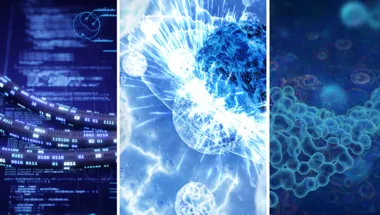
Grisha Szep
Research interests
- Non-equilibrium Science
Biography
Profile
Together with Station B at Microsoft Research Cambridge and the Randall Division of Cell and Molecular Biophysics at King's College London we aim to create tools that can make biochemical manufacturing more efficient, with efforts towards combating Eroom's law of drug discovery and addressing the reproducibility crisis in biotechnology. My current research focus is the development of novel parameter inference procedures for differential equation models where data had been obtained by flow cytometry or fluorescence microscopy.
Inference methods that focus on quantitative match between model and data in the time domain are often over-constrained by transient dynamics that may not even be related to the phenomenon under study. By expressing the target data in terms of bifurcations and using parameter continuation methods on the model to obtain predictions, we can infer with respect to high-level steady state observations directly. Our tools aim to help biomedical researchers design experiments and explore the relationship between model structure and high-level function.
Project
P71: Spatiotemporal dynamics of pattern forming reaction networks
Publications
(Pre-print) "Parameter Inference with Bifurcation Diagrams", G. Szep, A. Csikász-Nagy, N. Dalchau; June 2021
"Computing with biological switches and clocks", N. Dalchau, G. Szep et al. Natural computing 17 (4), 761-779
"Interpretation of morphogen gradients by a synthetic bistable circuit", P.K. Grant, G. Szep, et al. Nature communications 11 (1), 1-8
Complete list of Grisha`s publications can be found here
Research

Cross-Disciplinary Approaches to Non-Equilibrium Systems (CANES)
The mission of CANES is to train future research leaders in the understanding, control and design of systems far from equilibrium, based on rigorous training in theoretical modelling, simulation and data-driven analysis, and a breadth of awareness of common themes across disciplines.
Research

Cross-Disciplinary Approaches to Non-Equilibrium Systems (CANES)
The mission of CANES is to train future research leaders in the understanding, control and design of systems far from equilibrium, based on rigorous training in theoretical modelling, simulation and data-driven analysis, and a breadth of awareness of common themes across disciplines.
